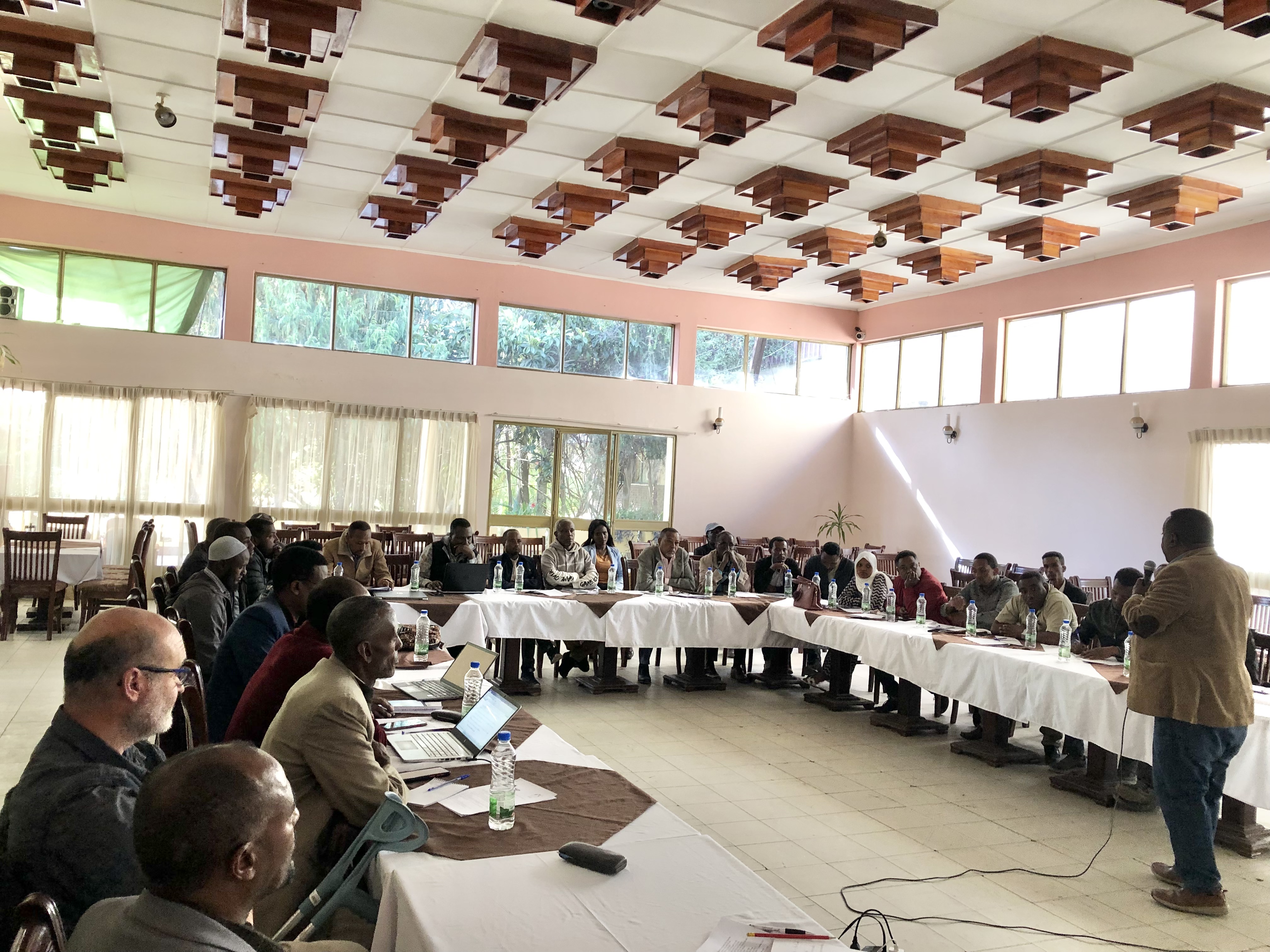

In 2018, Ethiopia launched a National Rabies Control and Elimination Program with the aim of eradicating rabies in the country by 2030. Rabies is a major public health concern in Ethiopia and kills > 2700 people annually, mainly in rural areas, with 99% of cases caused by a rabid dog bite. Livestock and wildlife are also affected by disease outbreaks, making it crucial to adopt a One Health approach to tackle this deadly virus. With the principal reservoir of rabies being domestic dogs, mass vaccination of dogs is one of the key actions undertaken by the federal government. The eradication programme is now in its Phase 2 (2021-2023), which goal is to implement dog mass vaccination campaigns in 13 selected towns in 9 regions. Collaboration is essential between all levels, from the federal to the local actors, partners and stakeholders.

Rabies, in conjunction with canine distemper virus, pose the main threat for the persistence of Ethiopian wolves, Africa’s most threatened carnivore. Recurrent outbreaks have been detected in wolf populations, notably in the Web Valley and Sanetti Plateau in Bale Mountains National Park. A single domestic dog carrying the virus entering wolf habitat can devastate an entire wolf population. EWCP has been conducting more than 30 years of disease management in Bale Mountains, vaccinating dogs village by village, door-to-door, in the communities. EWCP also vaccinates the wolves in case of outbreaks. Despite our efforts, the task is colossal: more than 20,000 dogs roam freely in Bale’s Afroalpine range where the wolves live.
Creating a larger buffer zone around wolf populations will undoubtedly allow a better protection for the wolves, as well as for the people and livestock. On 23-24 February 2023, EWCP organised a 2-day workshop in Goba in order to facilitate and develop partnerships to eradicate rabies in Bale Mountains. More than 35 people were invited to the workshop, including various stakeholders and animal health experts from the Ministry of Agriculture, the Ethiopian Wildlife Conservation Authority, the Oromia Bureau of Agriculture, the Frankfurt Zoological Society and involved woredas (districts). The first day in Goba was dedicated to presentations and talks regarding the rabies challenge and the implementation of the eradication programme. The second day brought the group to Dinsho, to visit the brand new EWCP field lab, which is fully equipped for animal examinations, post-mortems, first test screening of rabies and vaccine cold storage. Under the care of EWCP’s vet team leader, Muktar Abute, the field lab will improve prevention, disease surveillance and reactivity in case of outbreaks. Muktar has 15 years of experience to share on vaccination and effective handling of not-so-friendly dogs and can provide training for new personnel.
Following this workshop, representatives of the Ministry of Agriculture, which is overseeing the National Rabies Control and Elimination Program, agreed to send a vet team for a first dog vaccination campaign around Bale Mountains in March-April 2023. EWCP will fully support the actions of federal government locally, from technical support for dog vaccination to increasing awareness about the disease, improving dog population management and case reporting. By bringing people together during these two days, collaborations and partnerships were strengthened and we saw the promise to work together towards a common goal: decrease the prevalence of rabies in the Bale Mountains, with benefits for people, livestock and the wolves.
"We are all responsible. Together, we can do it." — Dr. Wubishet Zewdie, Ministry of Agriculture, Animal Health and Veterinary Public Health Executive lead